This article was originally published by Lingua Franca in its September/October 1995 issue (Vol. 5, No. 7). It is also replicated here.
Invisible, Inc.
Ever since Thomas Pynchon became the Great American Novelist, he has fled from his academic afcirmirers. Have they finally caught up with him?
By Scott McLemee
IN 1963, TIME MAGAZINE decided to exhibit before the public a specimen of the Brilliant Young American Novelist. So the editors sent a photographer to get a portrait of Thomas Pynchon, the author of a well-received (if perplexing) first novel called V. The book was a strange mixture of black humor and quest romance, in which the metaphysical hysteria of Kafka’s tales cohabited, somehow, with Jack Kerouac’s picaresque hipsterism. The author was twenty-six, and already somewhat more than promising. For Time‘s purposes, he was perfect, except for one problem. Thomas Pynchon did not want his picture taken.
Perhaps he just felt shy. There was, for one thing, the question of his teeth: Pynchon thought they made him look like Bugs Bunny. In any case, when the photographer tracked him down in Mexico City, Pynchon simply fled, hopping on a bus and disappearing into the mountains. Before long, his Mexican neighbors had nicknamed him Pancho Villa — not for his skill in evading the norteamericanos, but simply because Pynchon looked the part. He began cultivating a vast, wild moustache, as if to conceal his identity (and his teeth) behind a mask.
By the time his fourth novel, Vineland (1990), appeared, journalists knew better than to expect an interview with Pynchon, much less to ask for a picture. Writers often crave solitude but Pynchon has made an art of it. His writings are infrequent, his public profile nonexistent. The last published photograph of him dates from 1955. Even his whereabouts at any given time are a closely guarded secret. And this desire for invisibility goes well beyond shyness. Pynchon wants attention to go to his books, not his private life.
It’s worked. Over the decade following the Mexican escape, he published two more novels, The Crying of Lot 49 (1966) and Gravity’s Rainbow (1973). With them, Pynchon quit the league of merely gifted writers. He became the Great American Novelist. Dense with plots both narrative and conspiratorial, woven together with endlessly complex systems of metaphor and historical allusion — Pynchon’s fictions constructed a great labyrinth.
Today, quite a few literary critics wander that maze happily, in no particular hurry to leave. The interpretation of Thomas Pynchon has become, in brief, an academic industry. That fact may amuse him, and then again it may not. (He isn’t saying.)
BUT JUST HOW STABLE can an academic community be when it focuses its attention on a literary figure who composes epics of paranoia and obsession and insists on otherwise removing himself from the public sphere? By guarding the boundary between his life and his art, Thomas Pynchon has been asking for trouble. And now he has it. During the summer of 1995, an old rumor started circulating with new energy. And already it has divided the Pynchon community, bit by bit, into camps. Call it “the Wanda Tinasky question.”
A group of literary sleuths in the San Francisco area believes that, during the 1980s, Thomas Pynchon wrote a series of letters to Northern California newspapers under a variety of pseudonyms, with “Wanda Tinasky” being the most frequent. When the claim was first aired in 1990, few Pynchon scholars paid much attention; it all seemed too outlandish. But with a collection of Tinasky’s letters scheduled for fall publication, the topic of Pynchon’s possible authorship has finally become a serious question for discussion. Could literature’s most ostentatiously silent author have cryptically revealed a whole new oeuvre to his thirsty readers? Some Pynchon critics think so. Others who, at first, believed the Tinasky material was the novelist’s work have now changed their minds. And that shift of opinion has already generated a bout of speculation in some quarters: Just what were these eminent Pynchonians afraid of?
The debate, if not yet heated, is certainly growing warm.

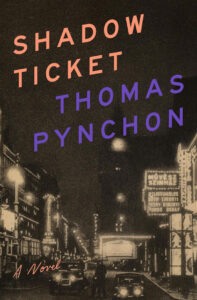
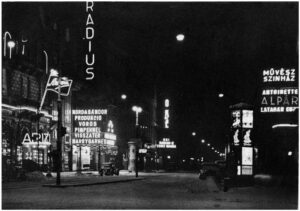
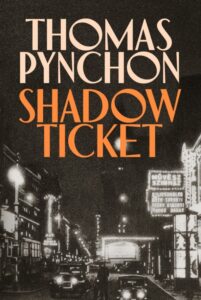
 It was seeing one of our American colleagues recently describing them as “a group of bootlegged Thomas Pynchon chapbooks printed in the UK” that brought back to mind a delightful piece of original research carried out by Florina Jenkins for a London Rare Books School essay. To set the record straight, here is a pared-down version of her findings.
It was seeing one of our American colleagues recently describing them as “a group of bootlegged Thomas Pynchon chapbooks printed in the UK” that brought back to mind a delightful piece of original research carried out by Florina Jenkins for a London Rare Books School essay. To set the record straight, here is a pared-down version of her findings.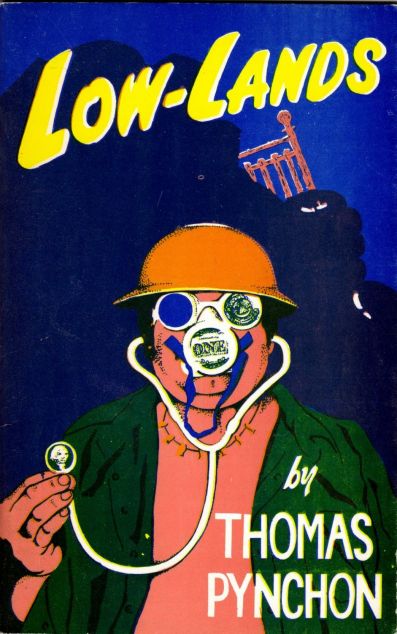 Ink Monkey salutes the genius of iconic publisher Aloes Books, and co-founder Jim Pennington, whose samizdat publications during the 1970s and 1980s included works by Thomas Pynchon, Bob Dylan, William Burroughs, Patti Smith and Kathy Acker.
Ink Monkey salutes the genius of iconic publisher Aloes Books, and co-founder Jim Pennington, whose samizdat publications during the 1970s and 1980s included works by Thomas Pynchon, Bob Dylan, William Burroughs, Patti Smith and Kathy Acker. Twelve years after his previous novel, Bleeding Edge, Thomas Pynchon will be unleashing his ninth novel, Shadow Ticket. The publication date is October 7, 2025. Coming in at 384 pages, it will be a tad longer than his 2009 novel Inherent Vice.
Twelve years after his previous novel, Bleeding Edge, Thomas Pynchon will be unleashing his ninth novel, Shadow Ticket. The publication date is October 7, 2025. Coming in at 384 pages, it will be a tad longer than his 2009 novel Inherent Vice.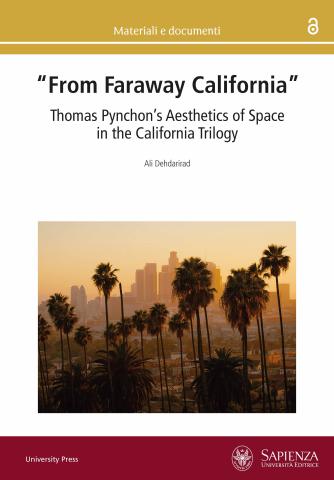 I hope I can steal a minute of your time to draw your attention to the publication of my book on our favorite writer:
I hope I can steal a minute of your time to draw your attention to the publication of my book on our favorite writer: 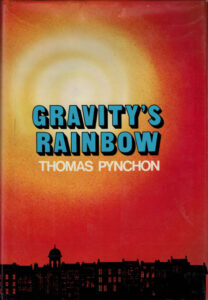
 Books are notorious for their outsized influence on young minds. For me,
Books are notorious for their outsized influence on young minds. For me,